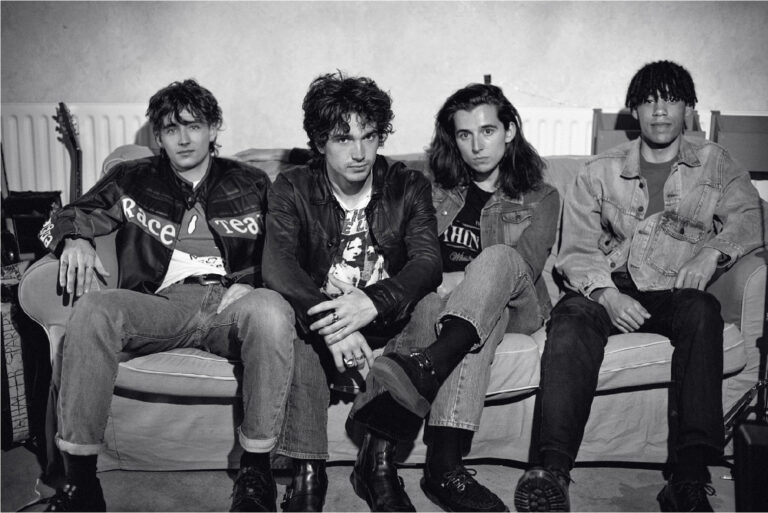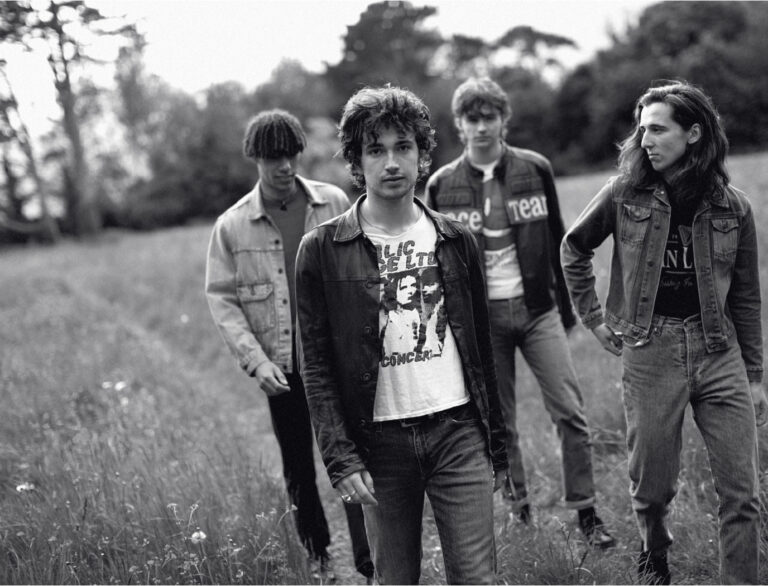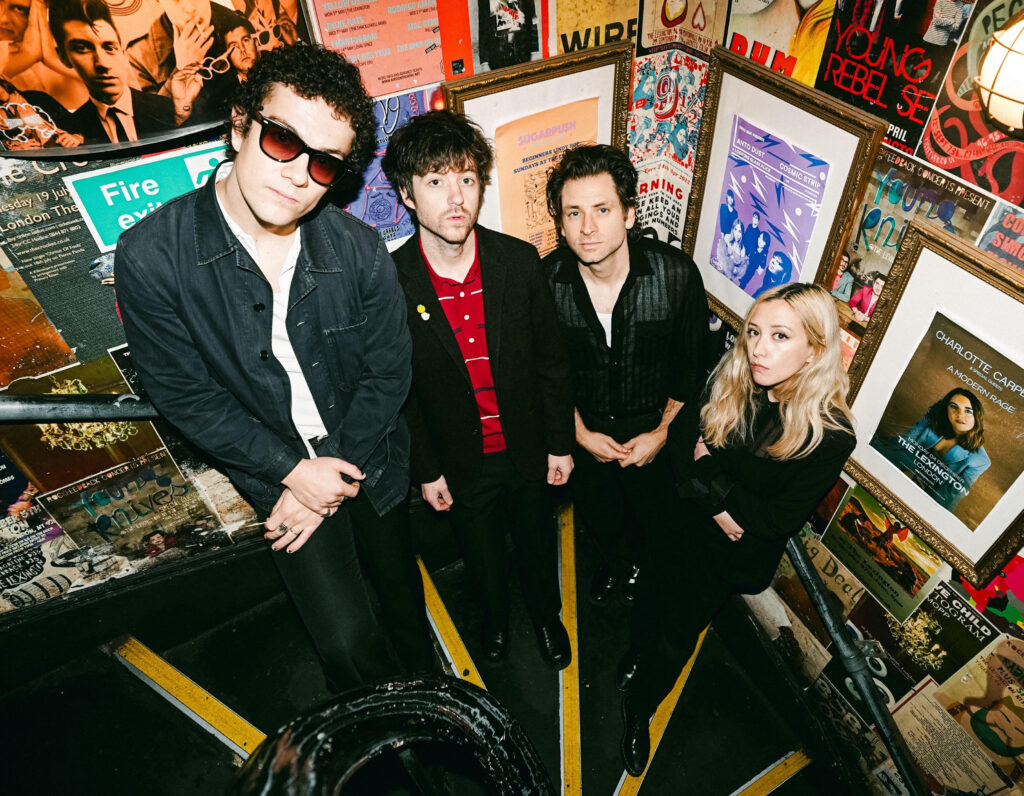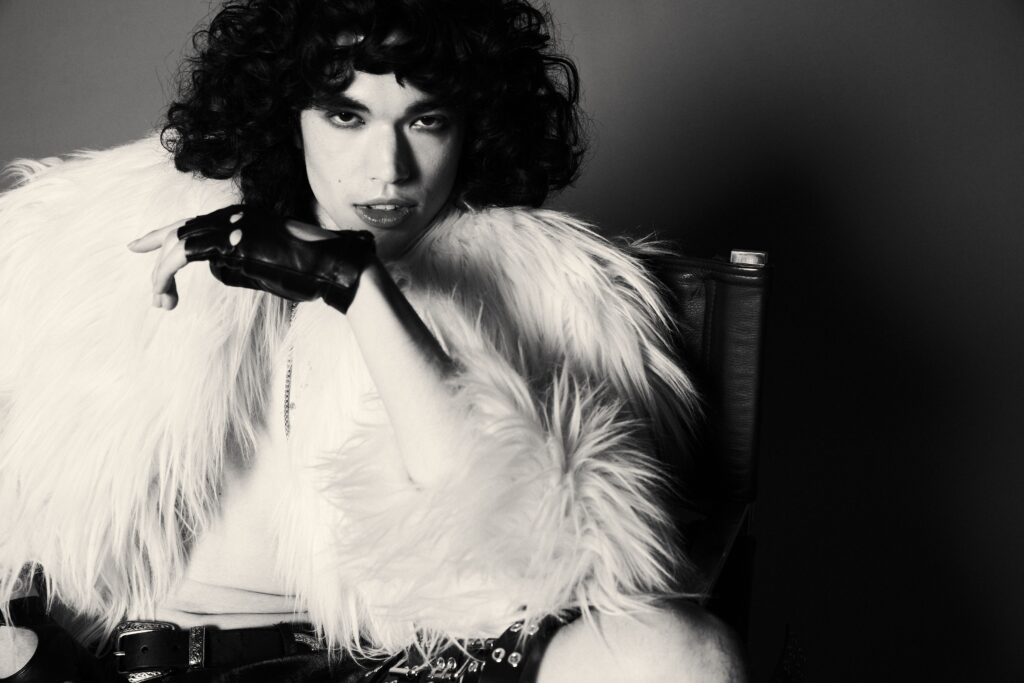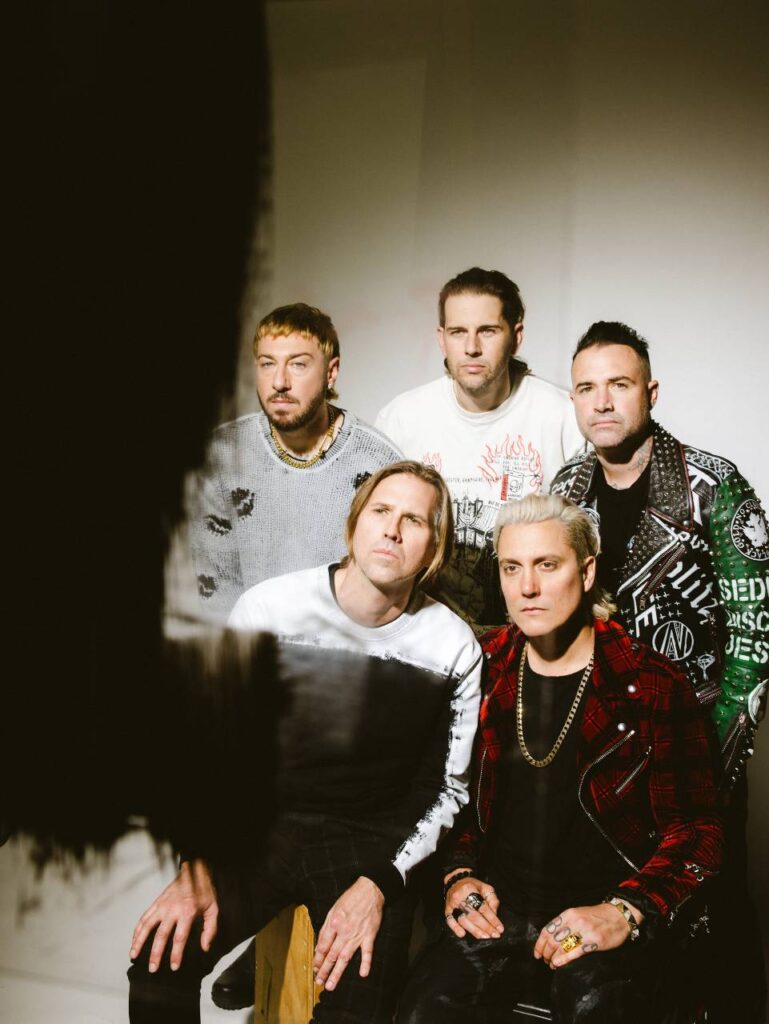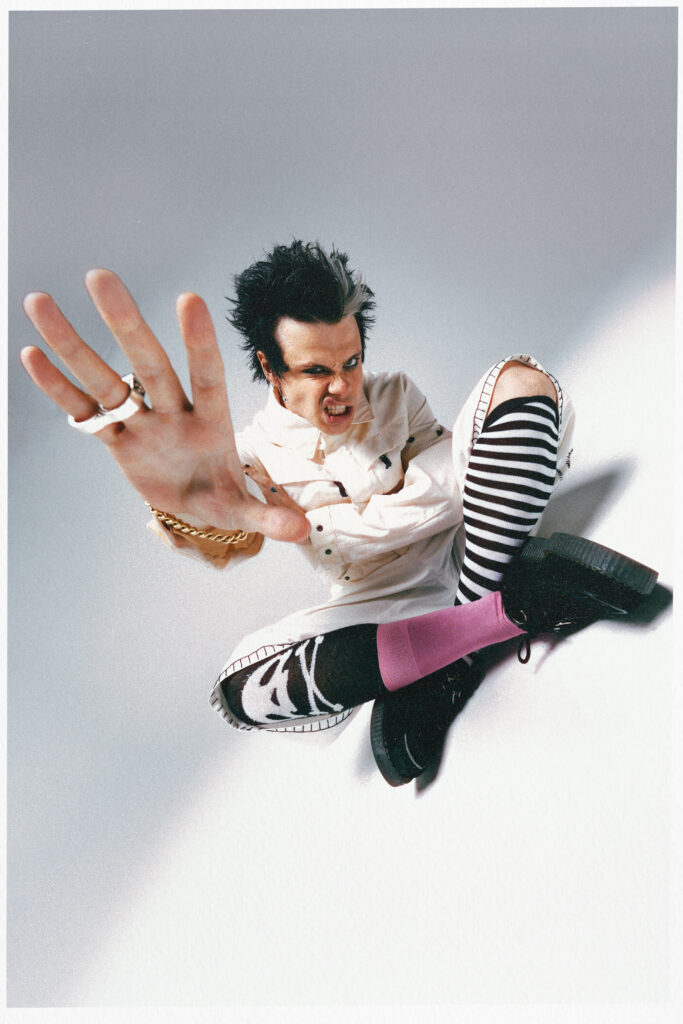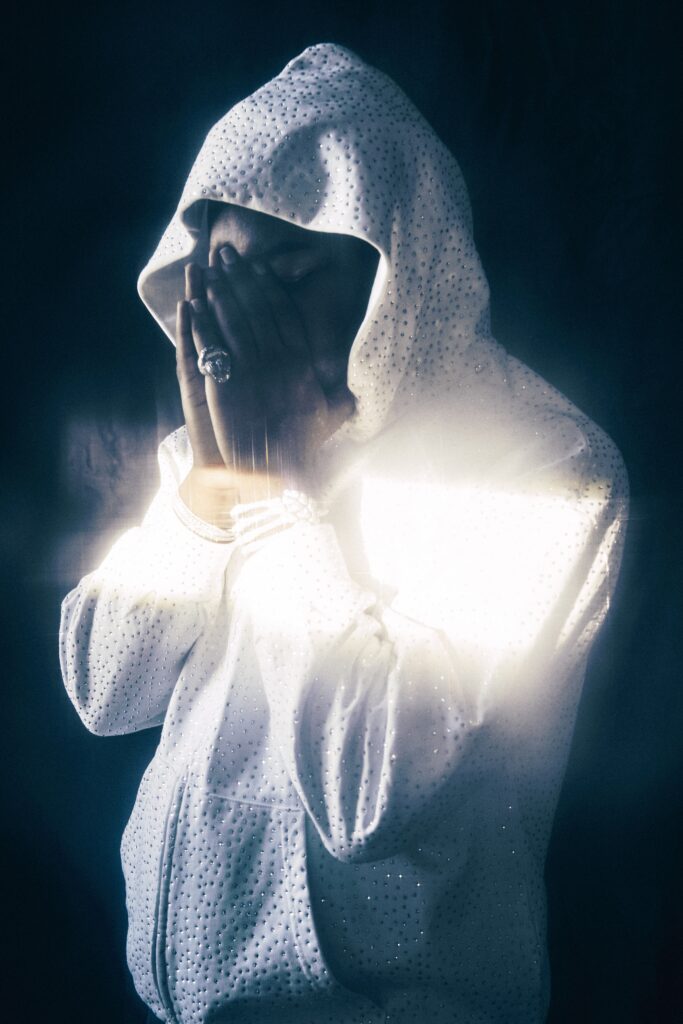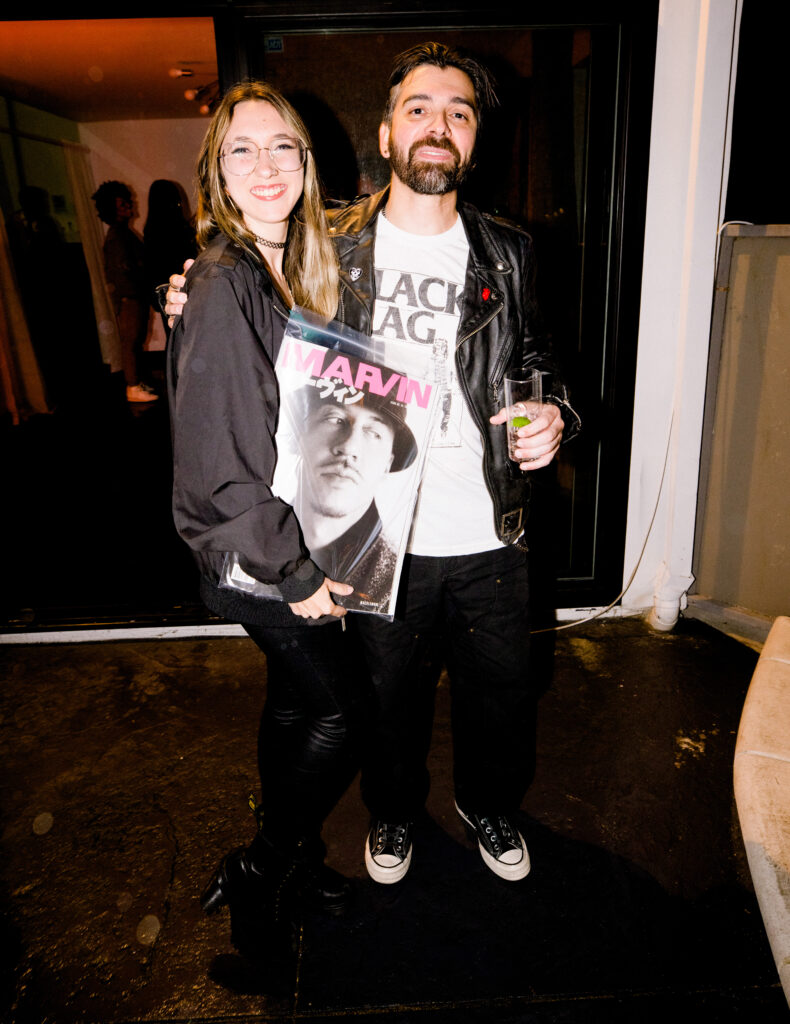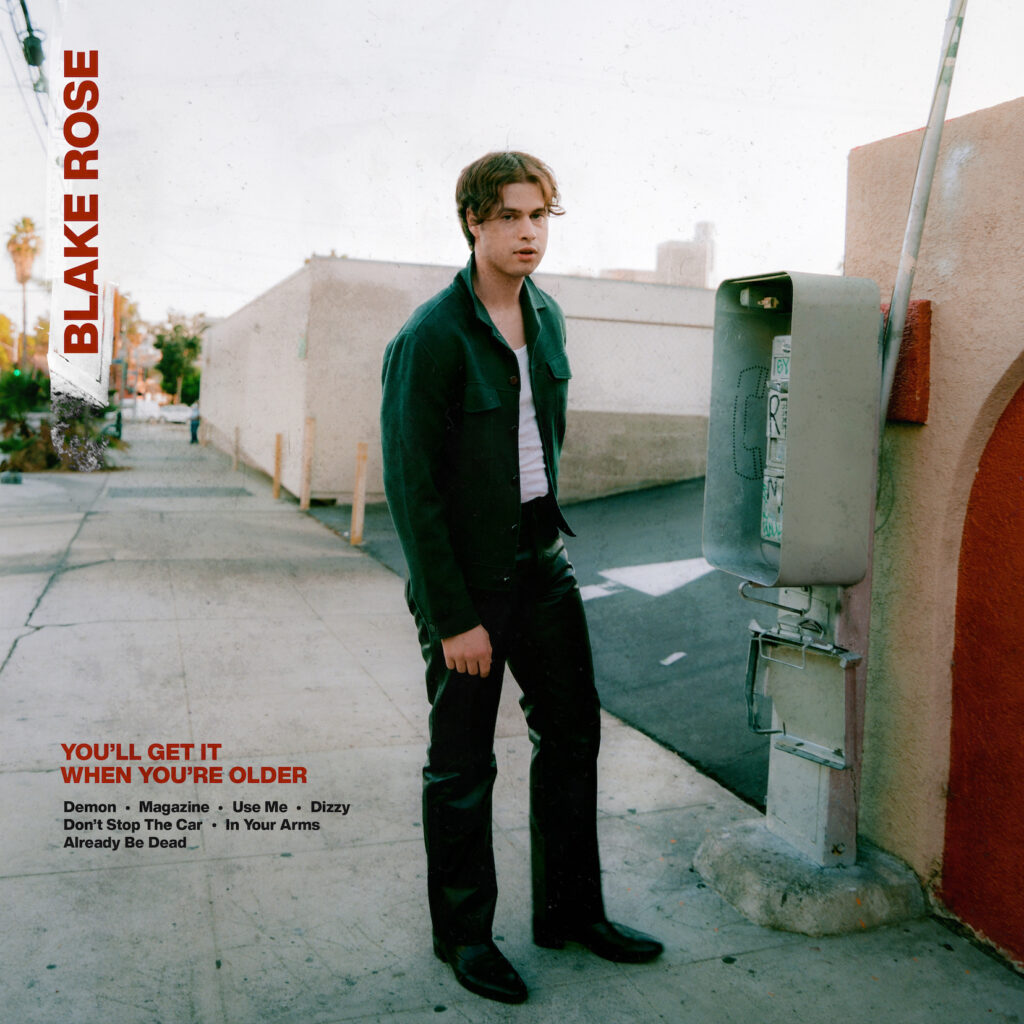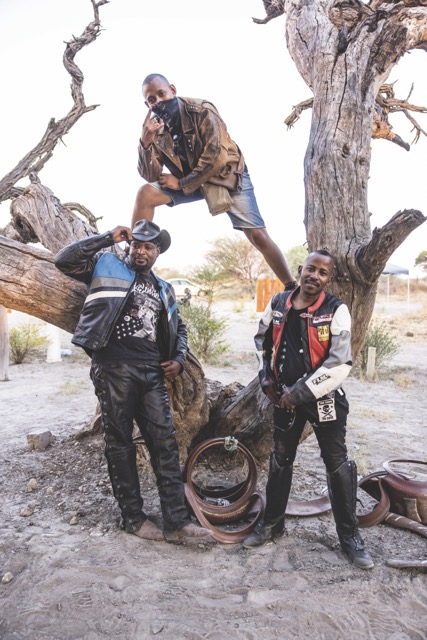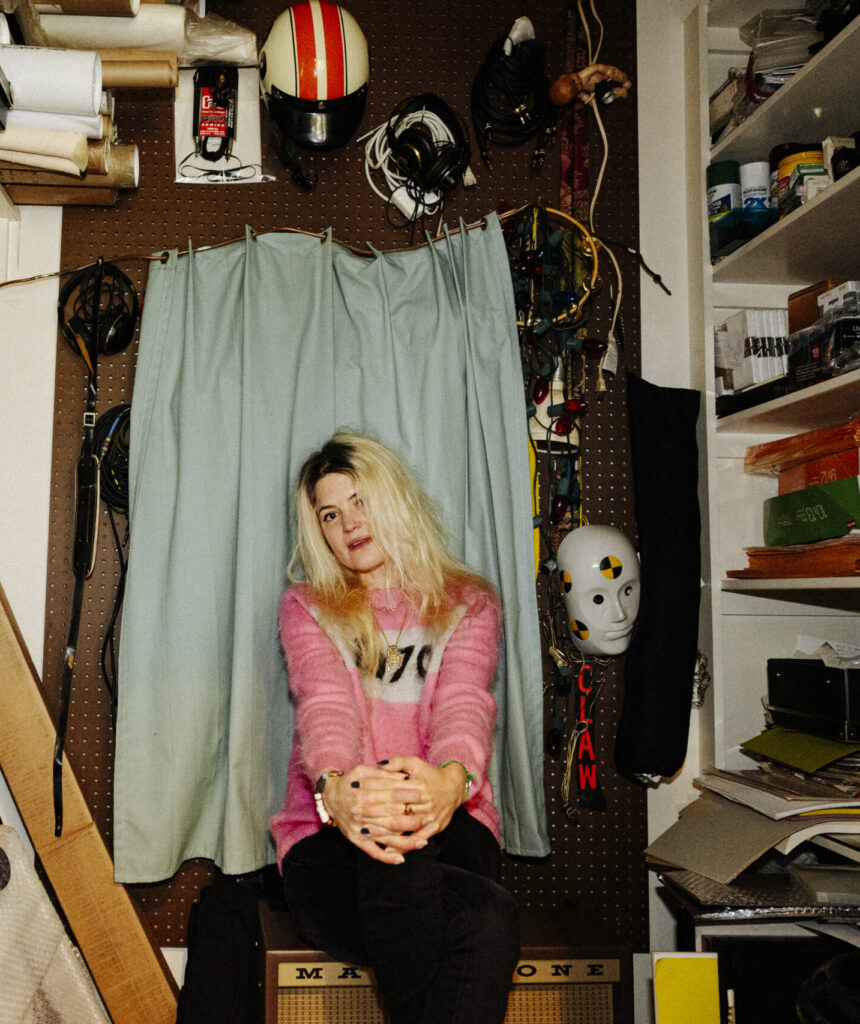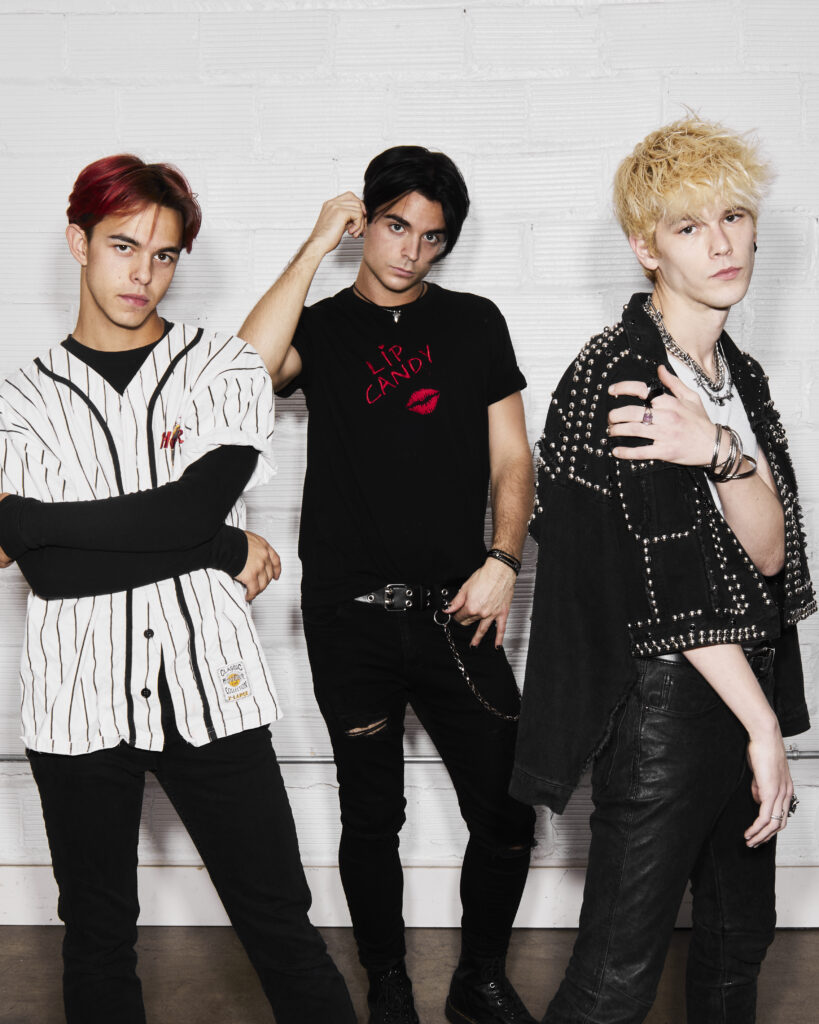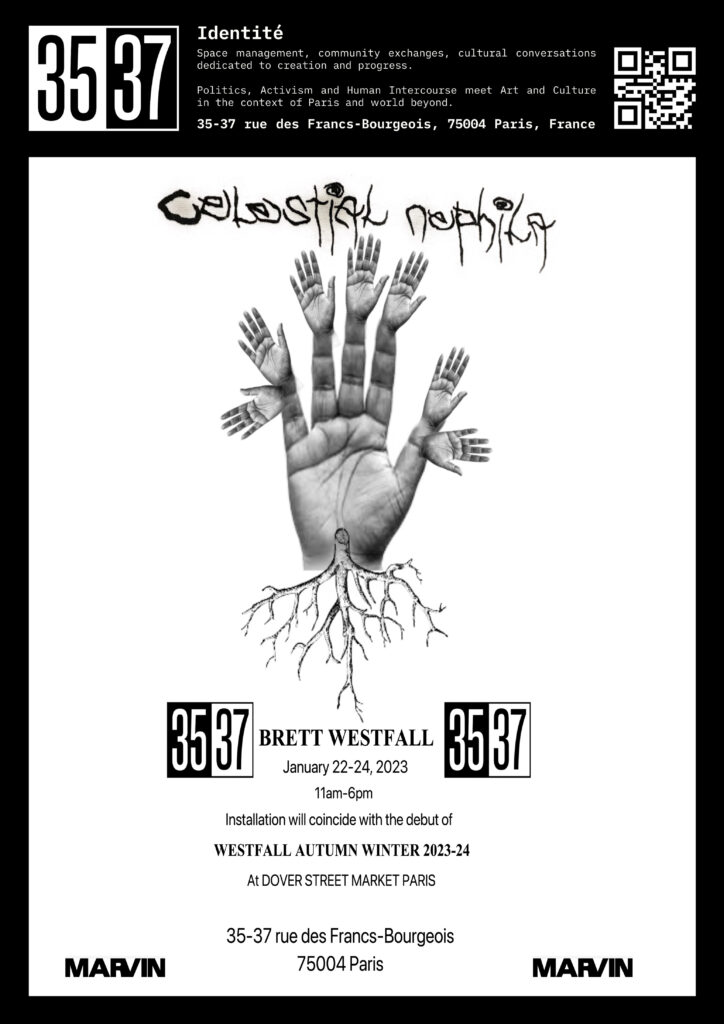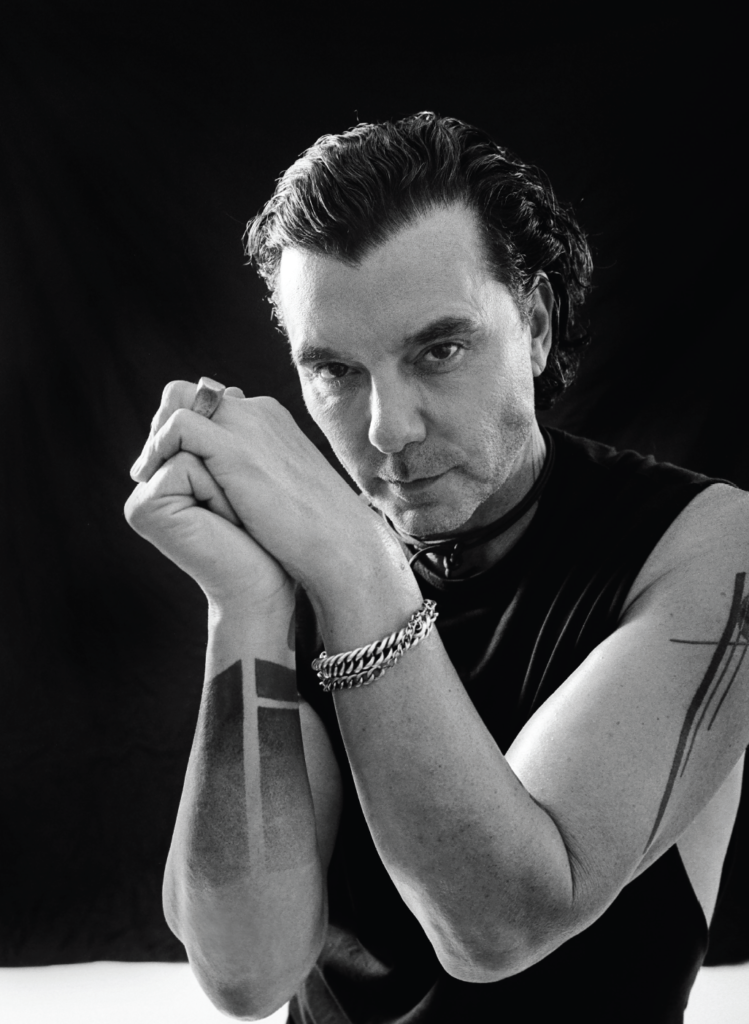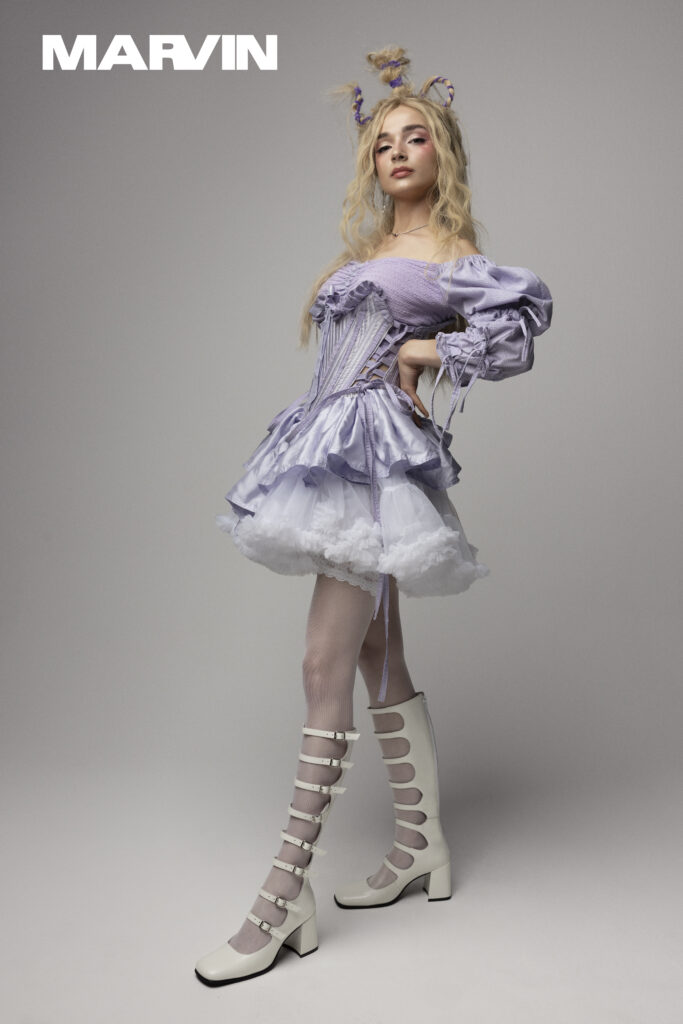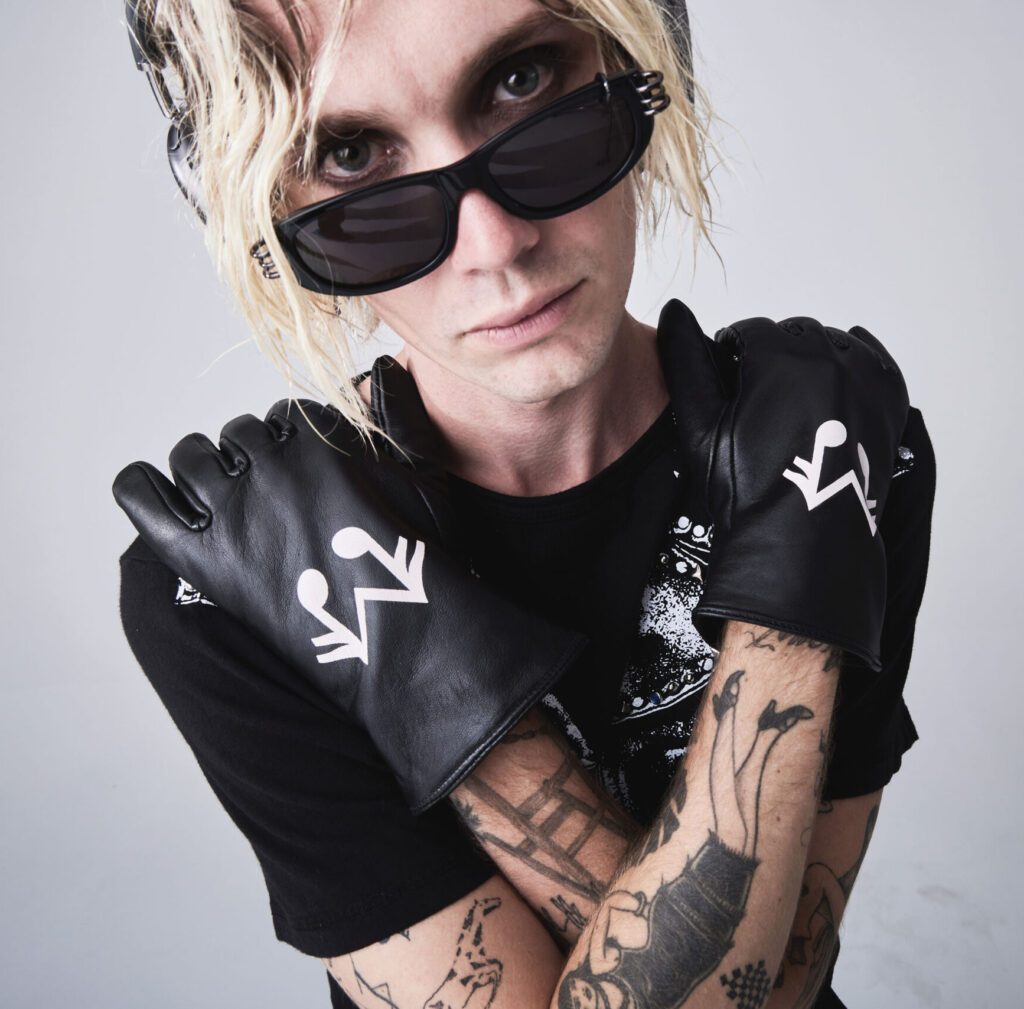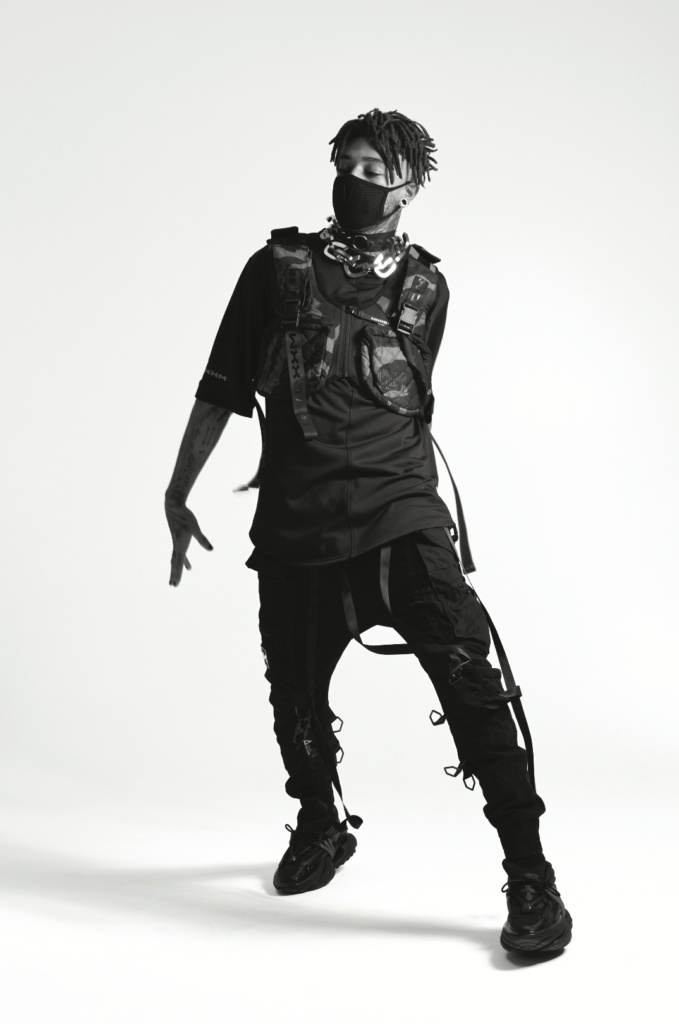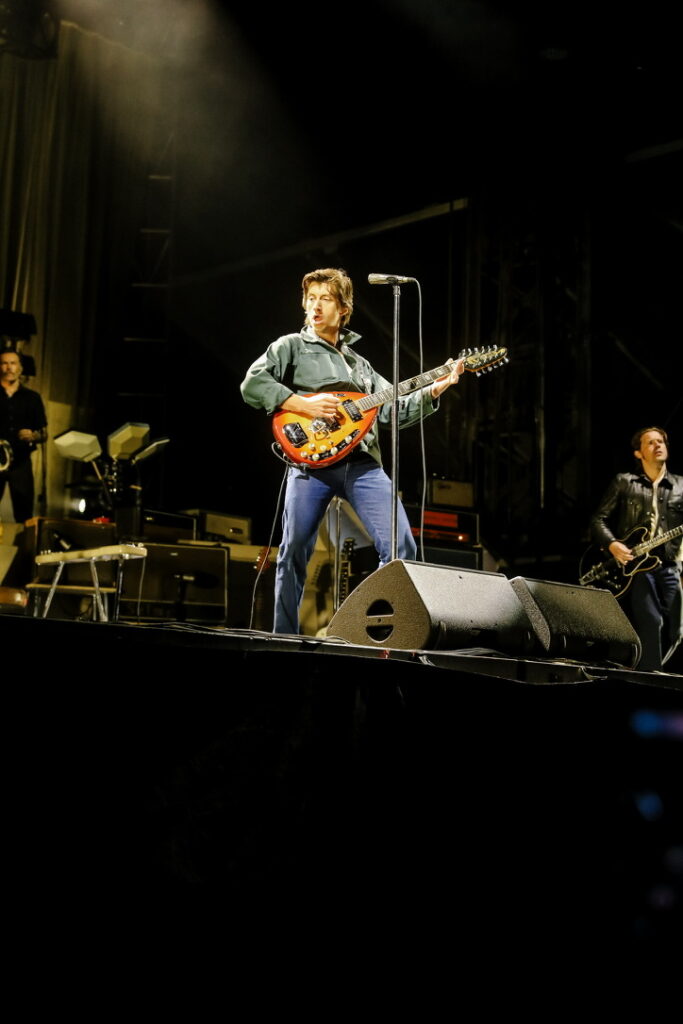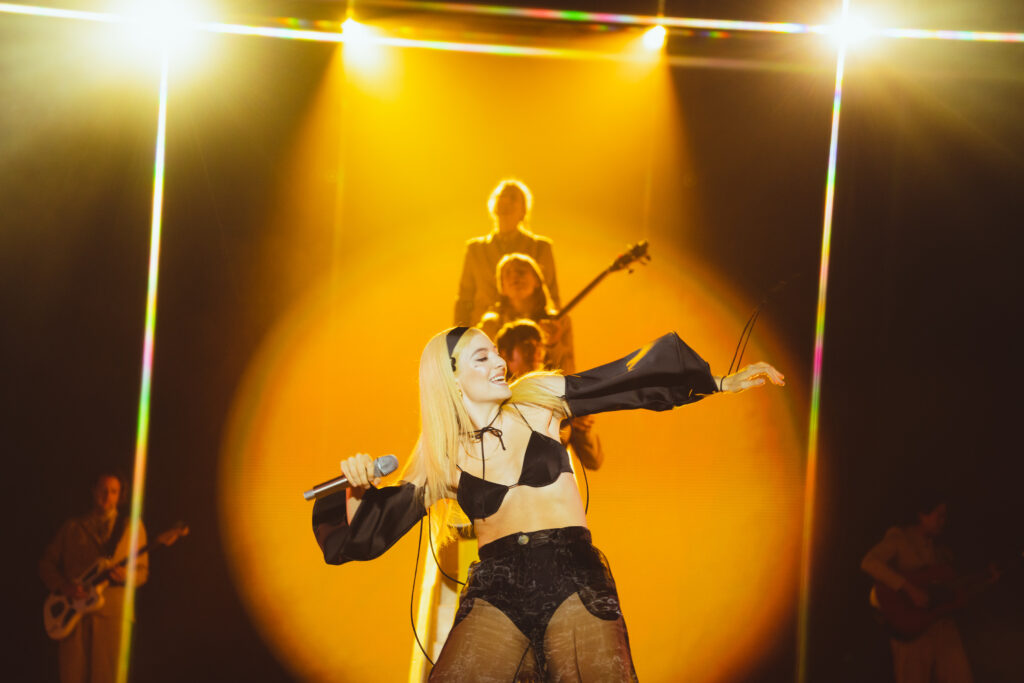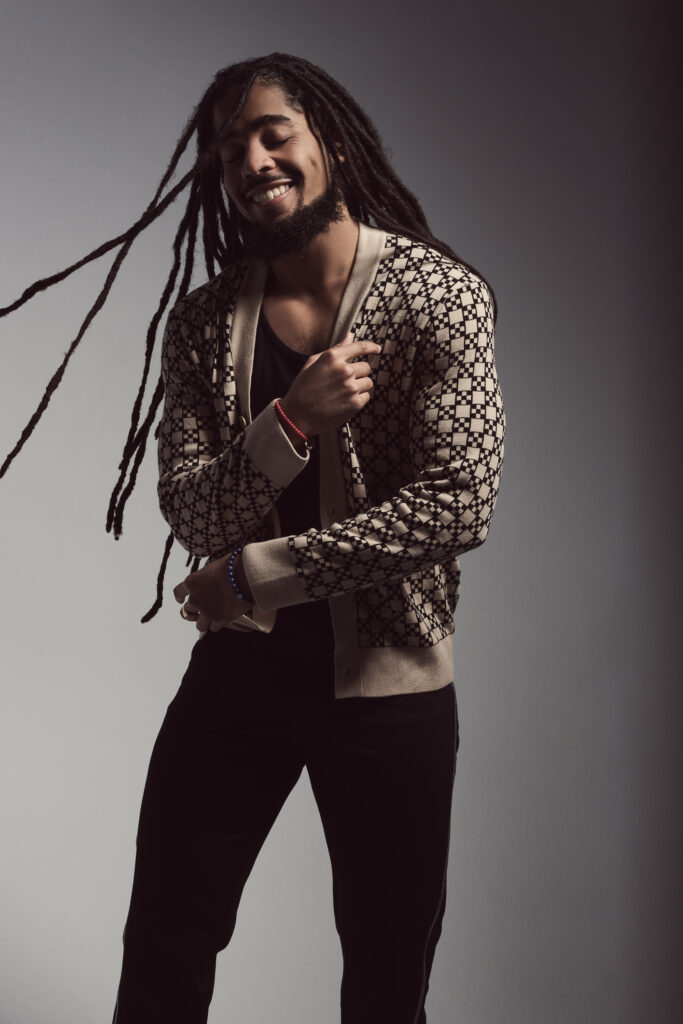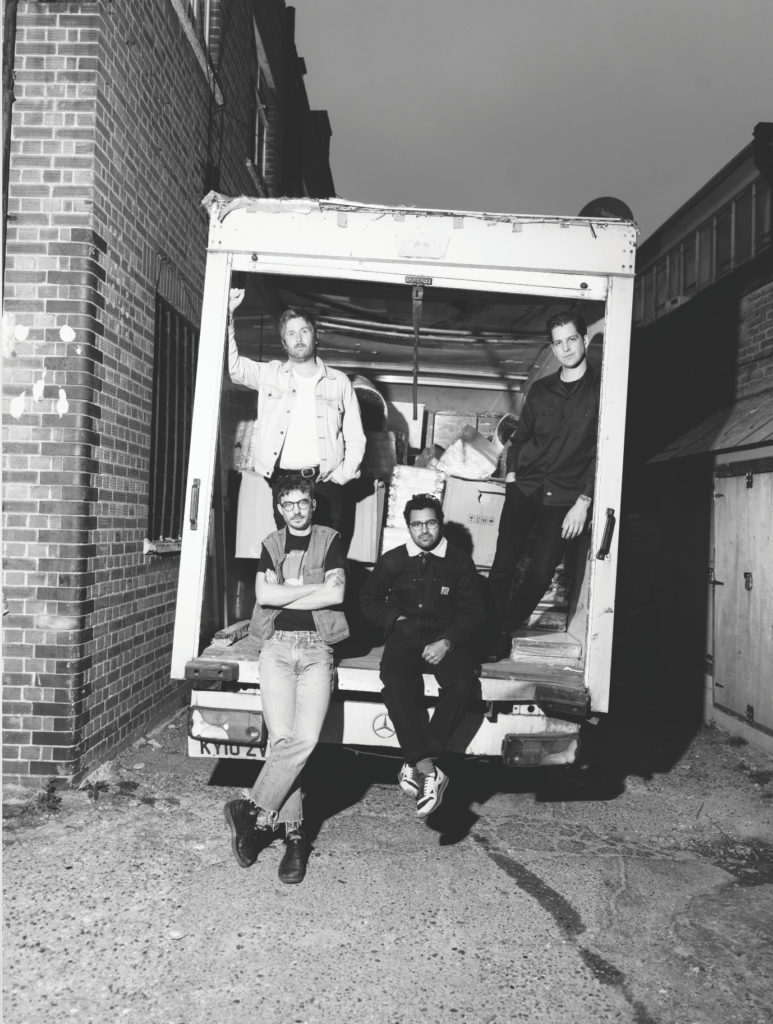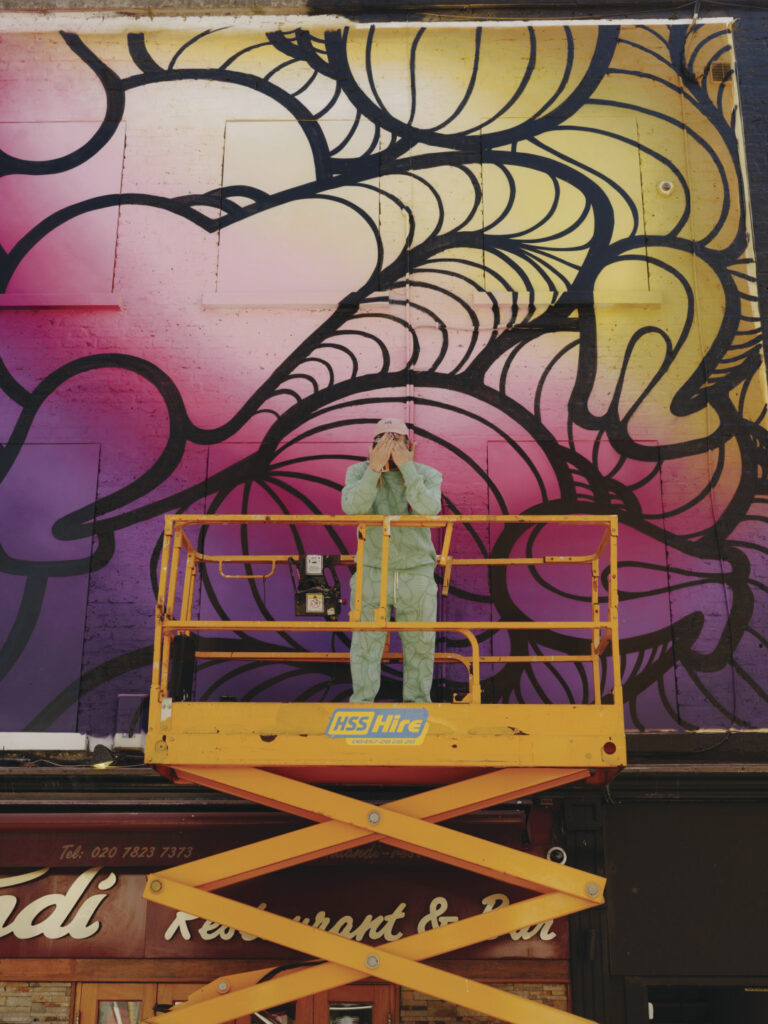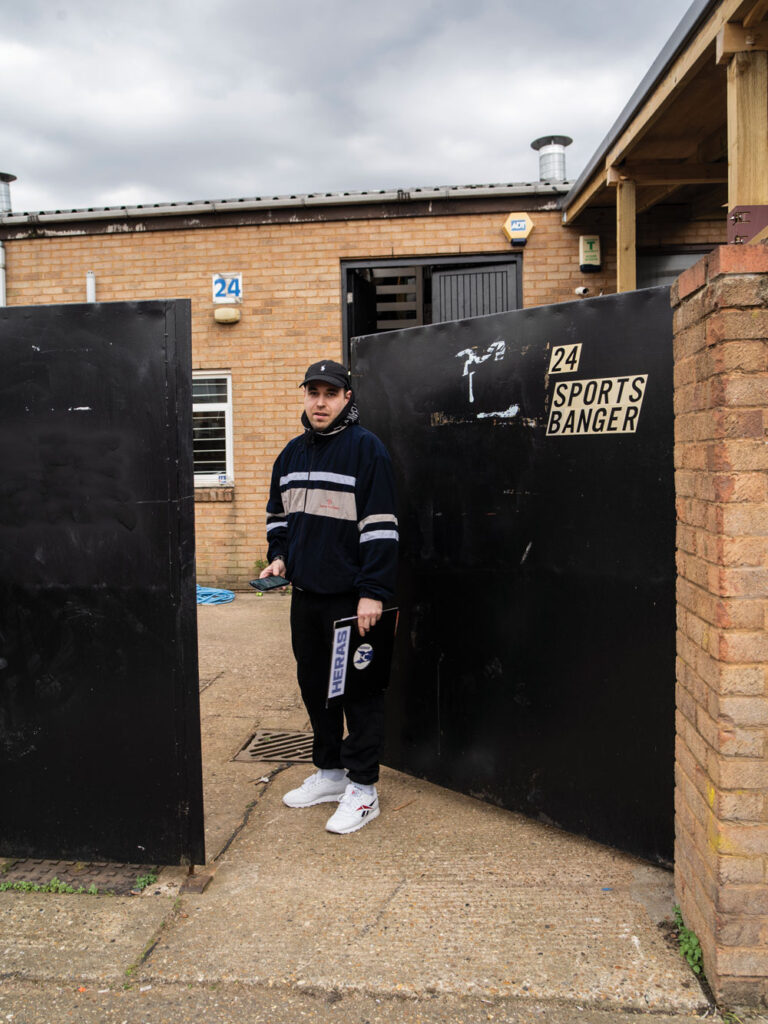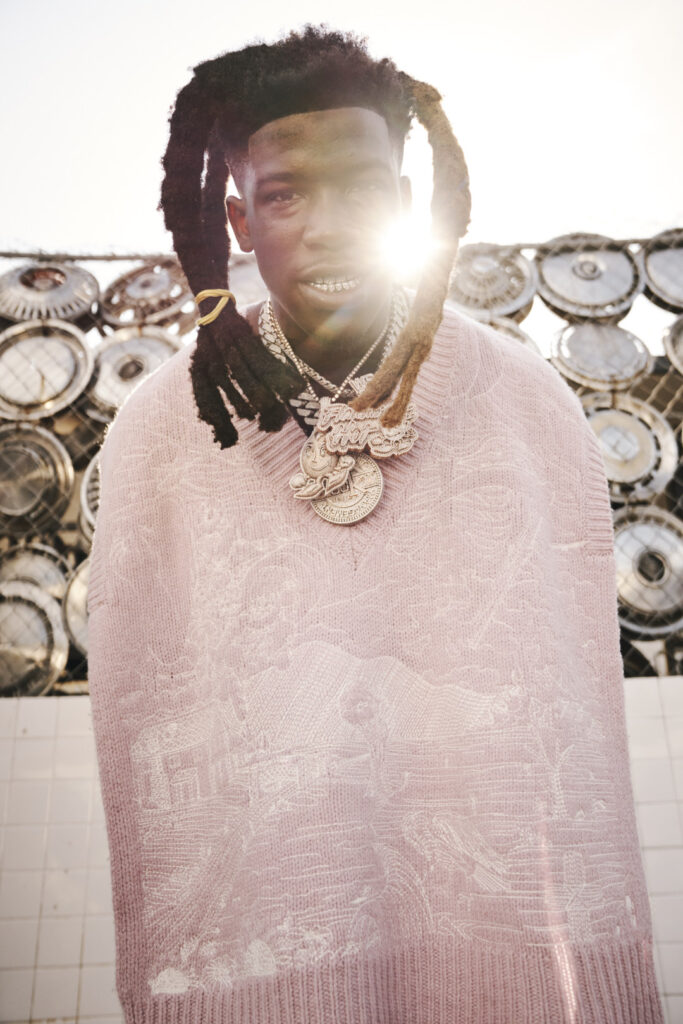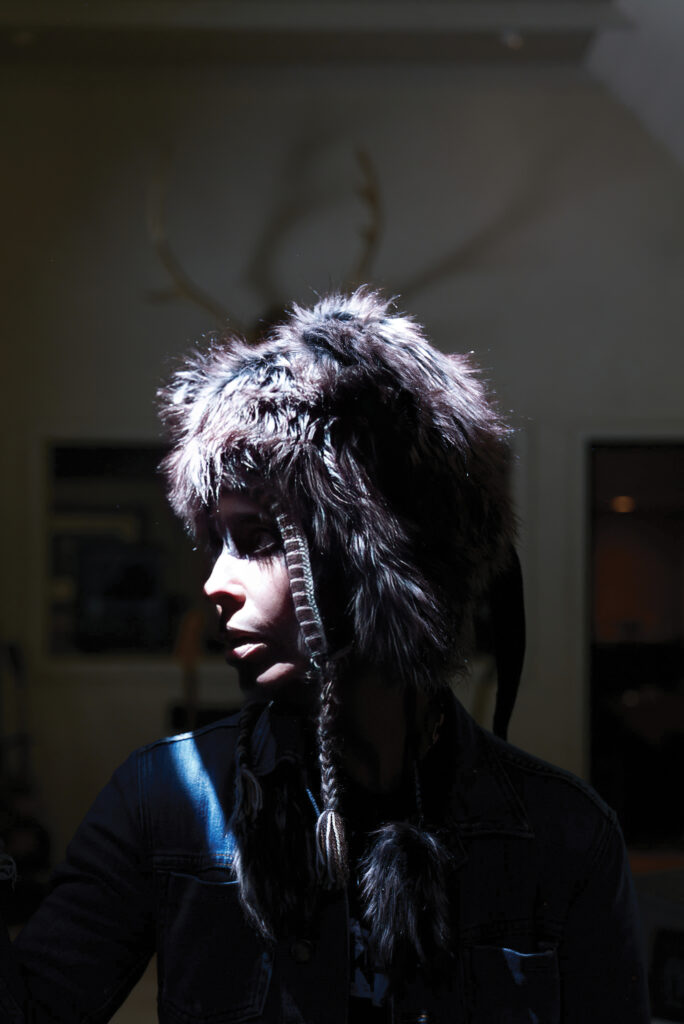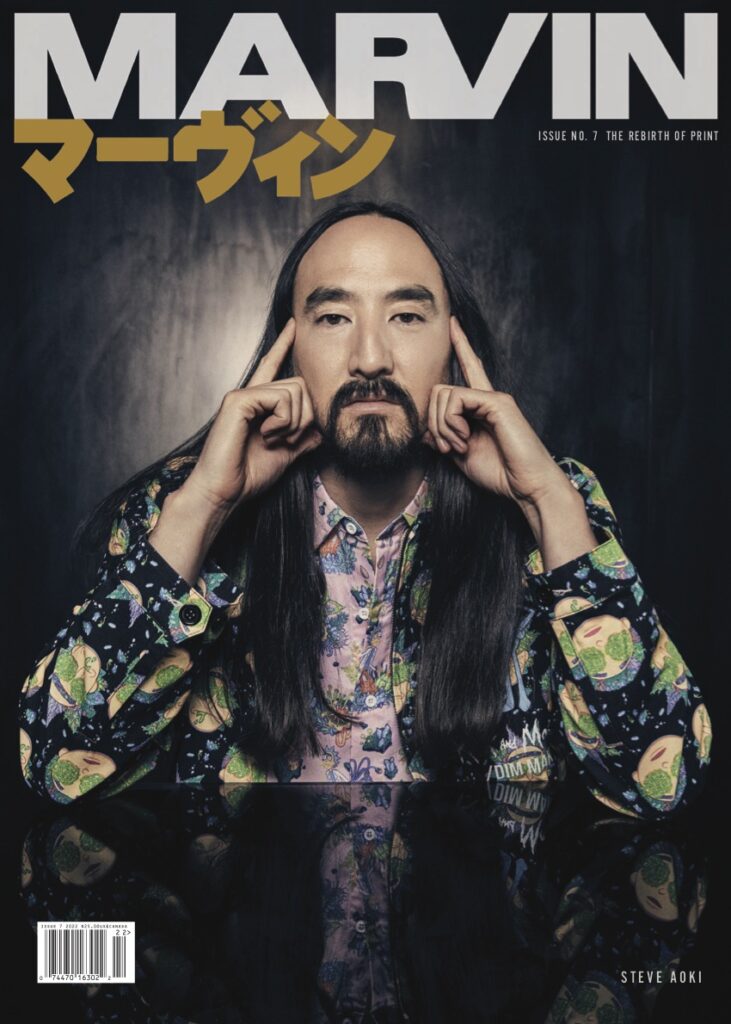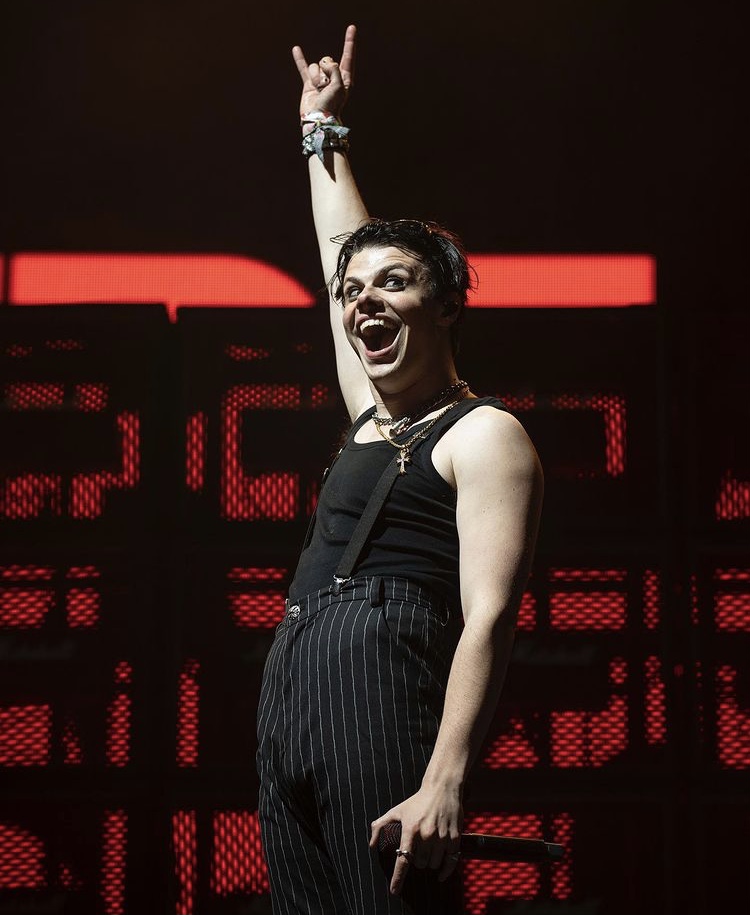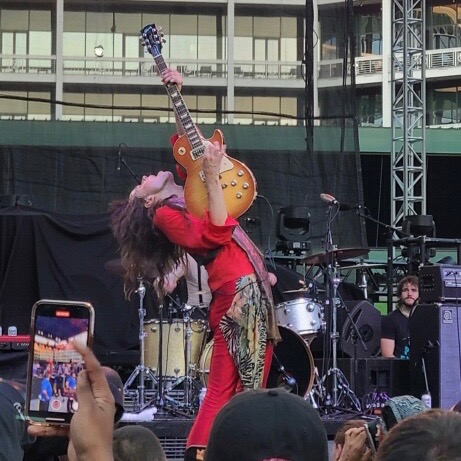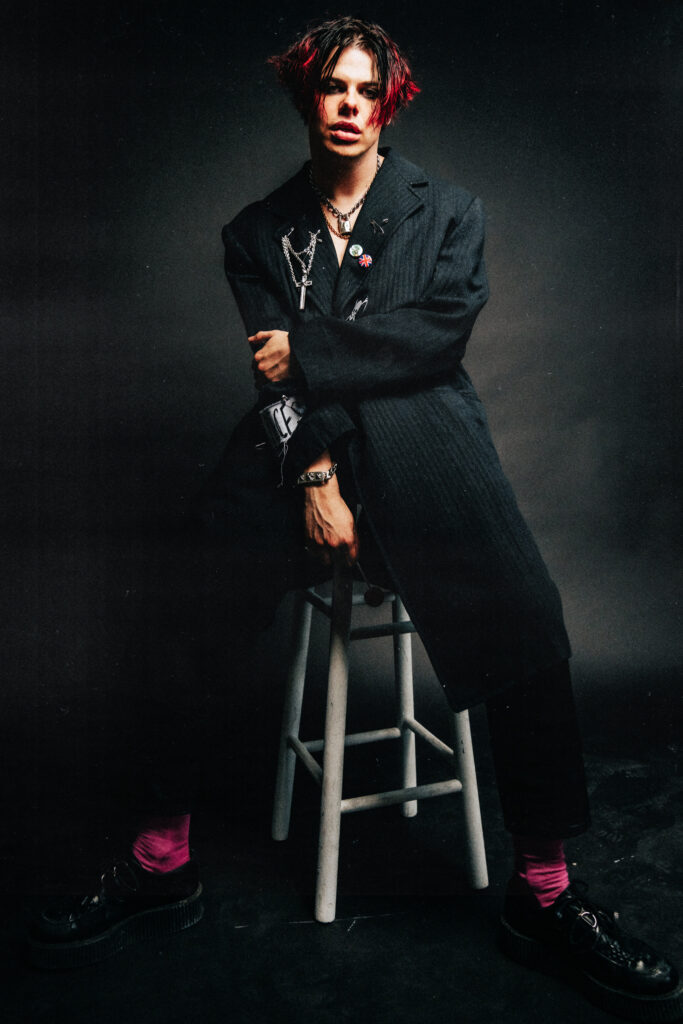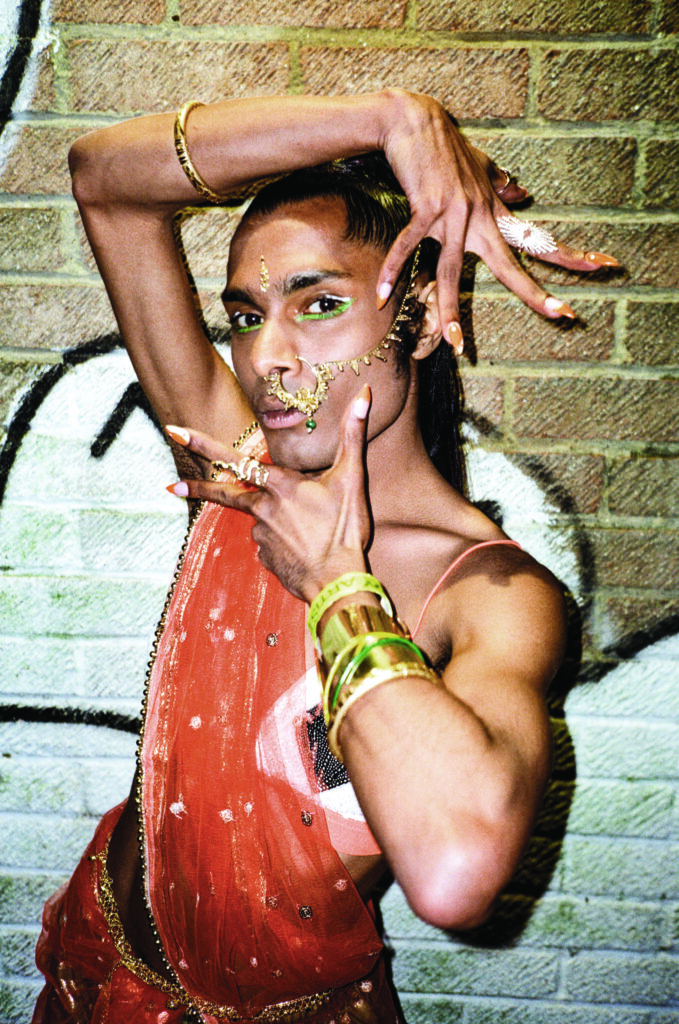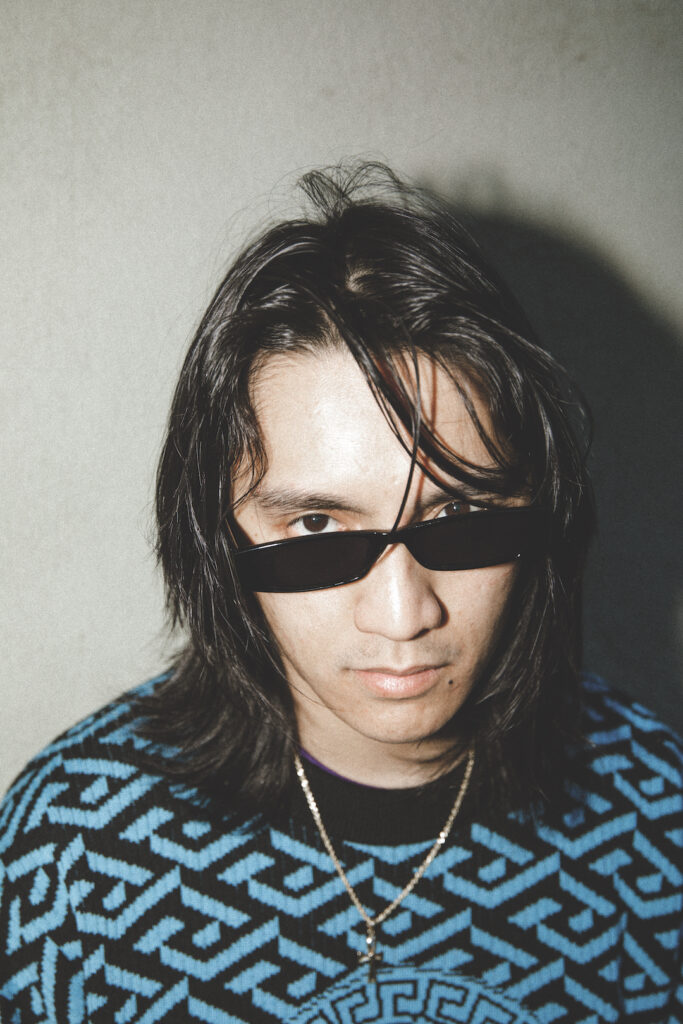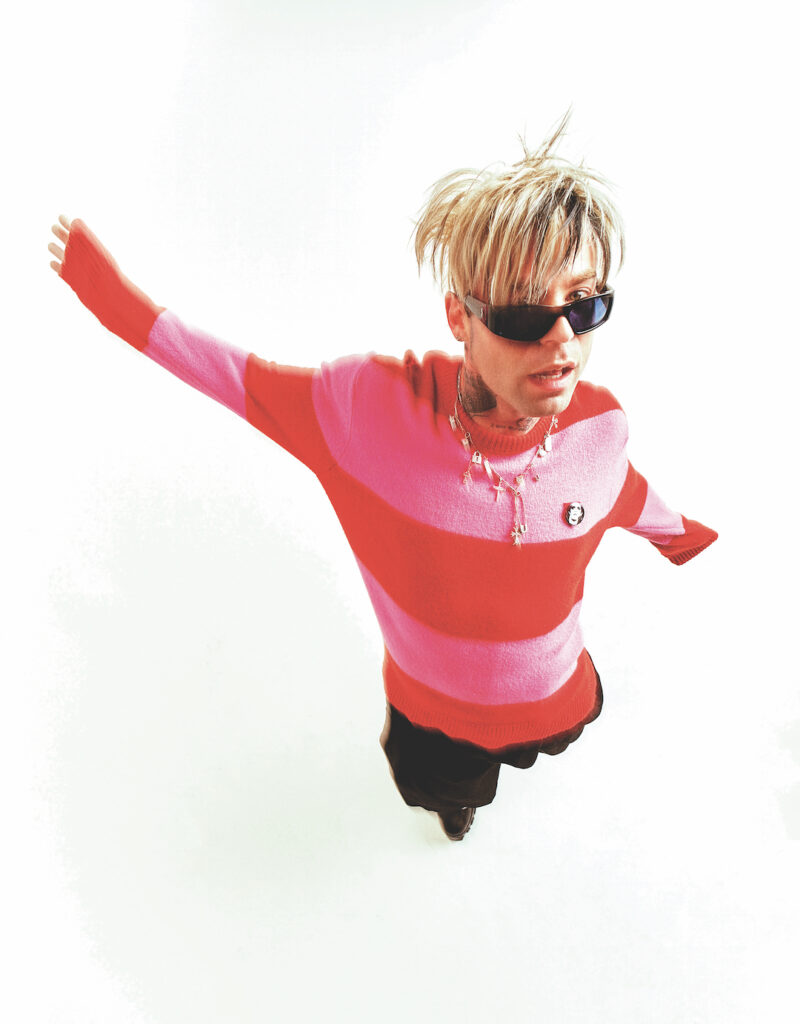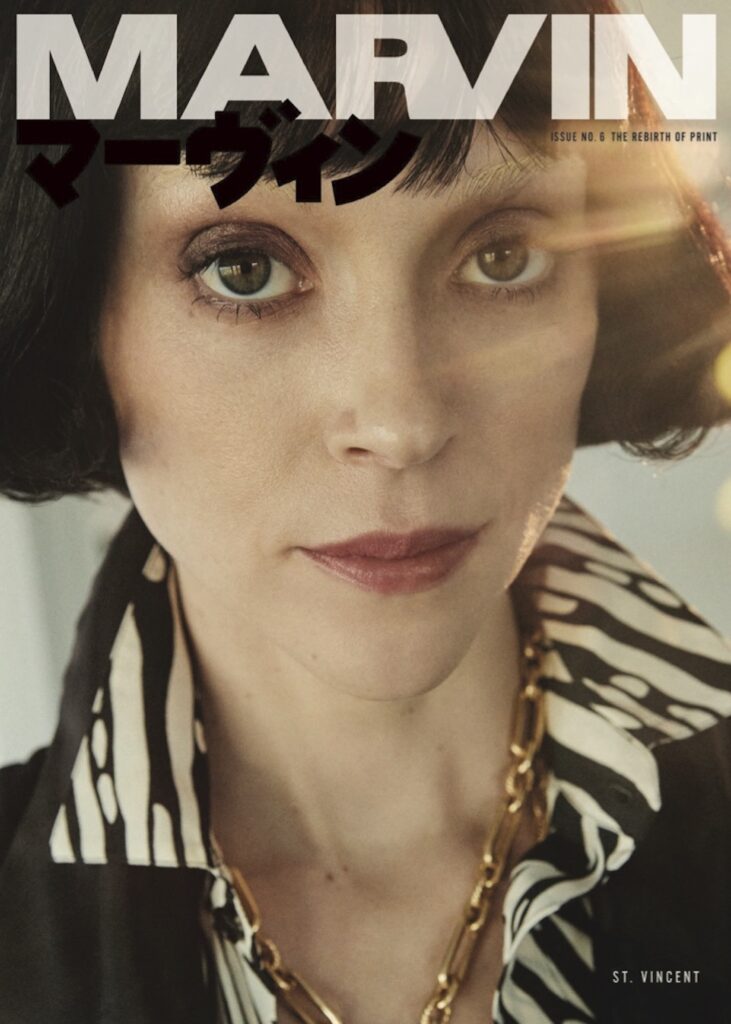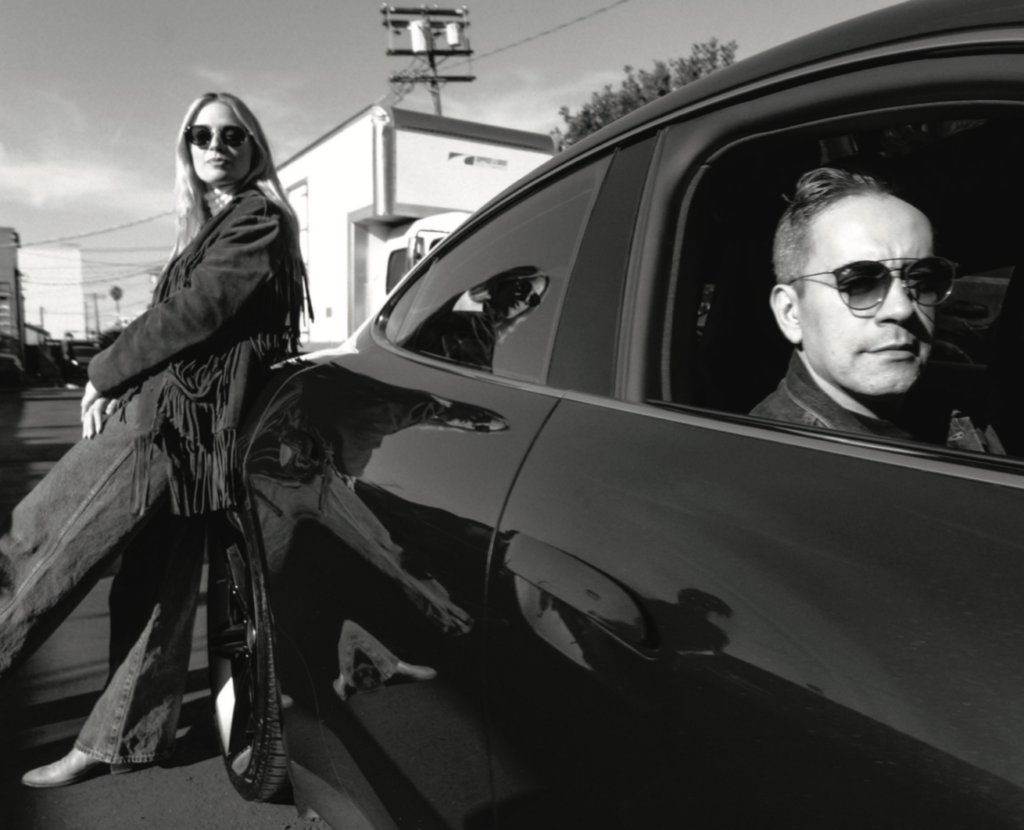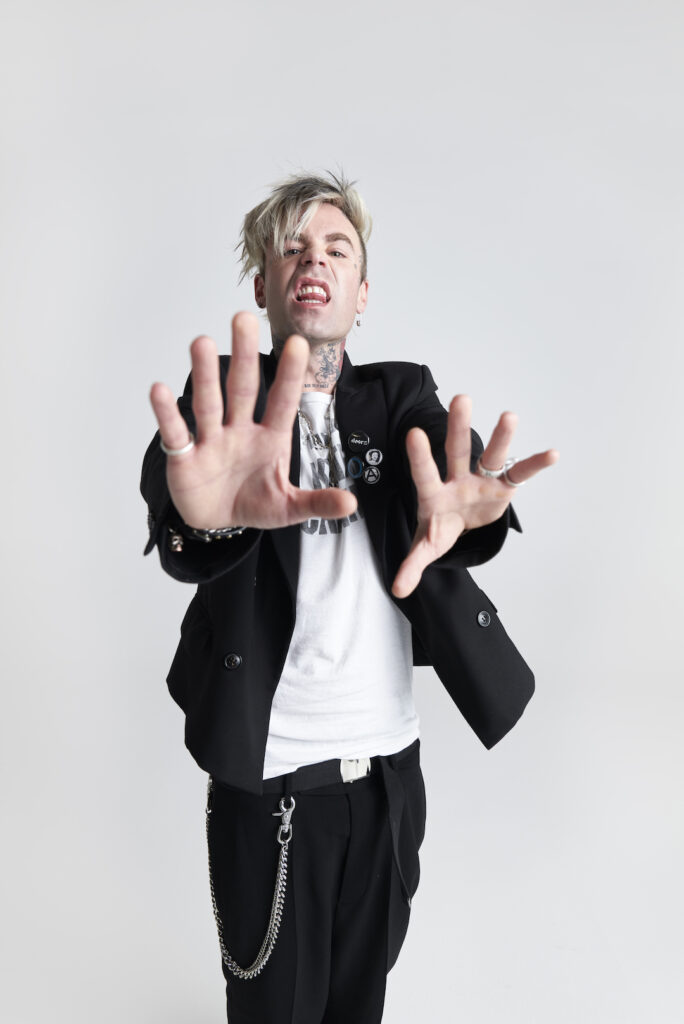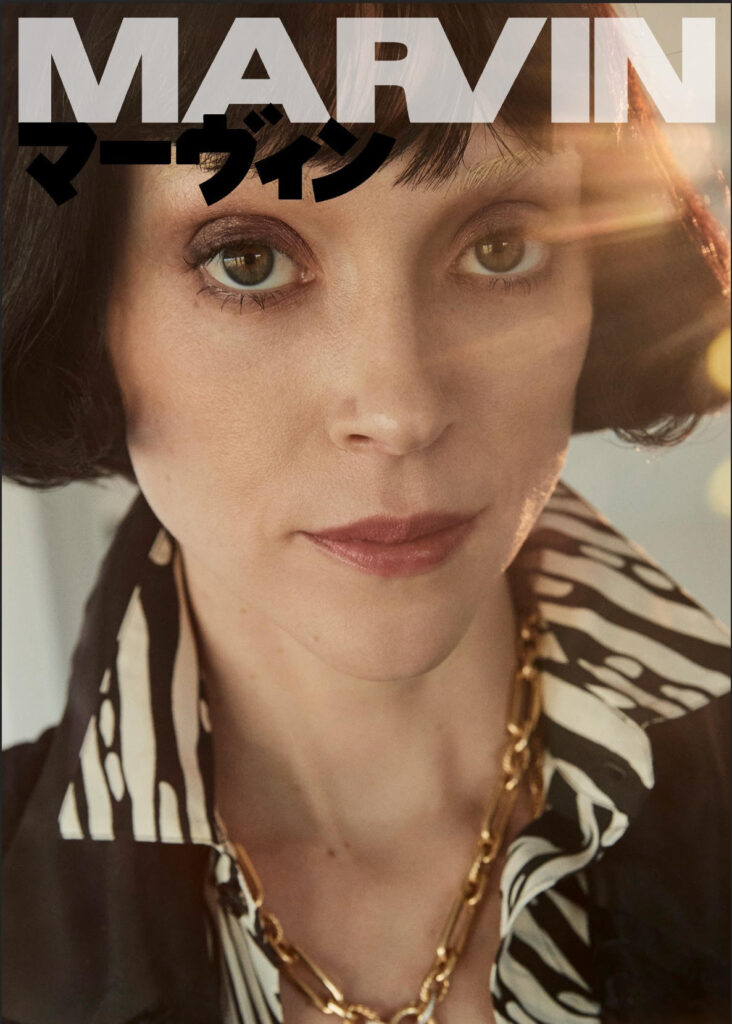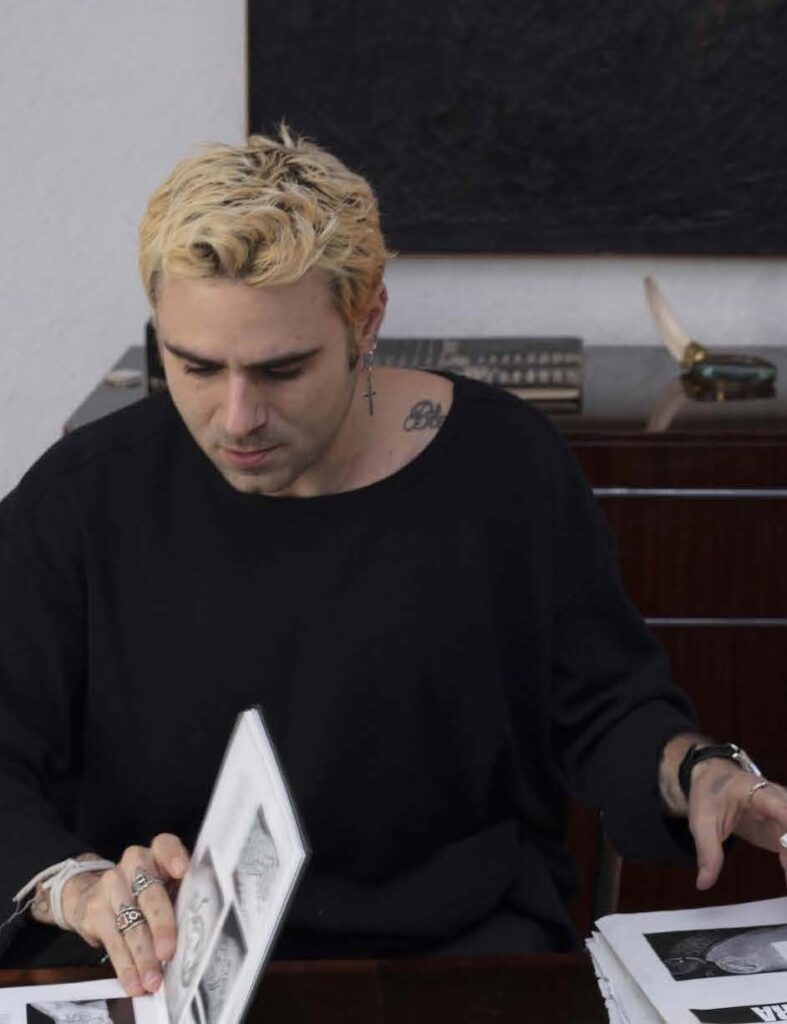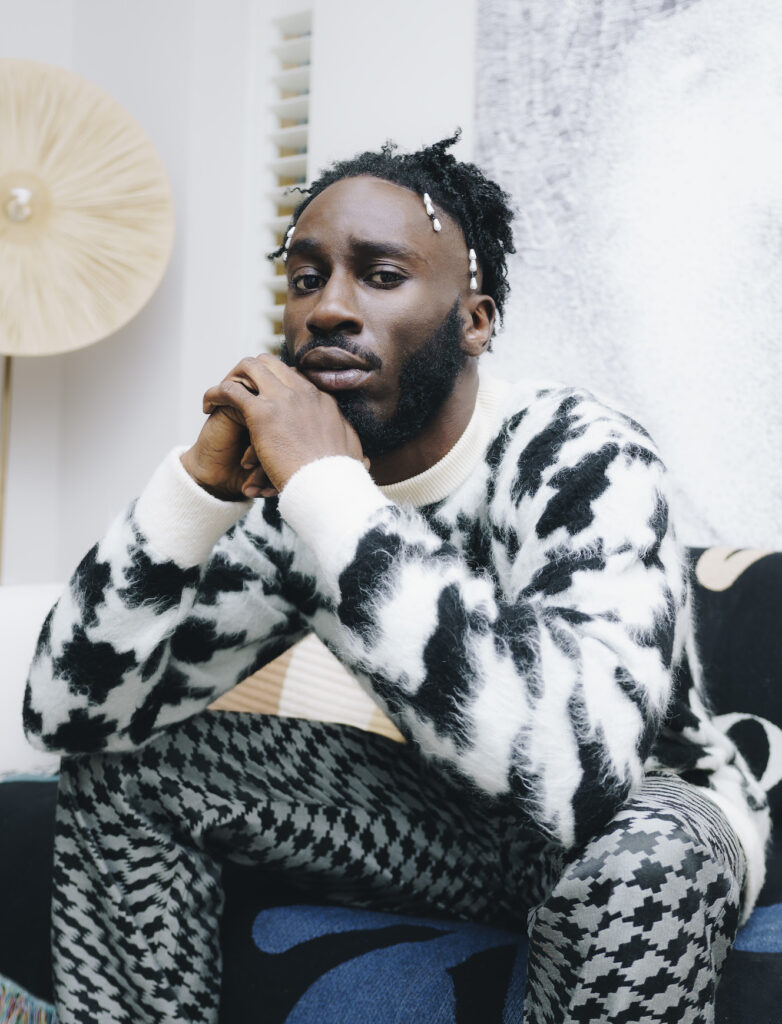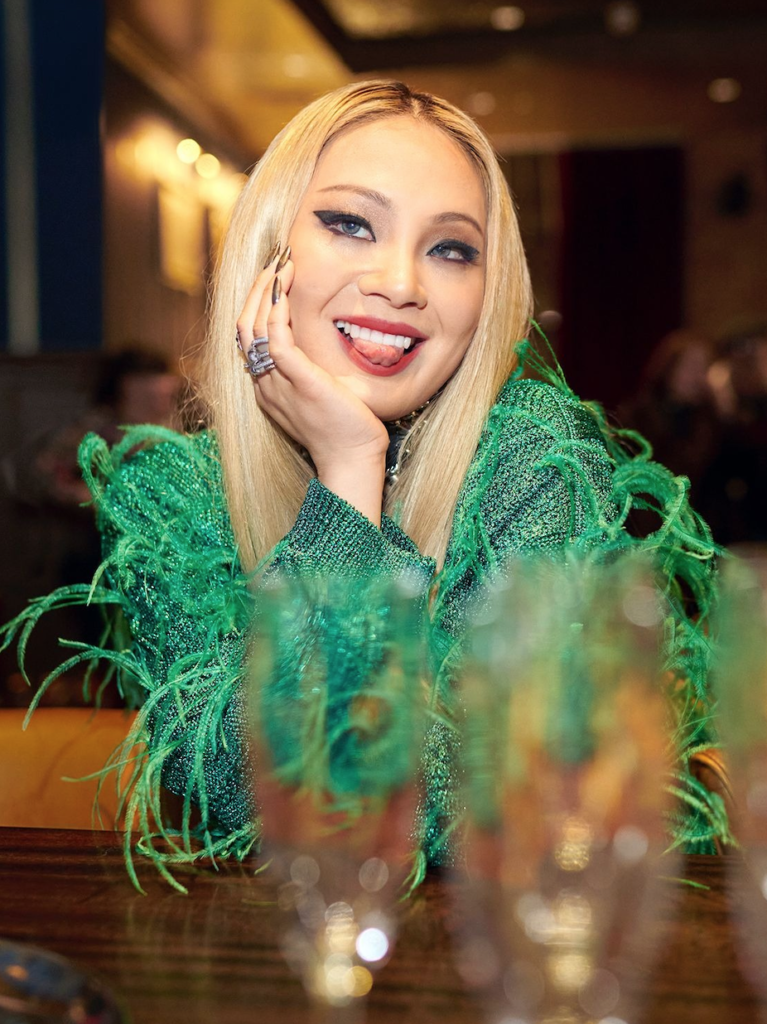Irish Rock Band Inhaler Looks Forward to the Future
Words by Ben Allen
Photography by Rich Gilligan
Hair & Grooming by Gareth Bromell
Inhaler began last year at a breakneck pace.
After picking up prestigious “ones-to-watch” gongs from the BBC and GQ, the Irish rock band — purveyors of glistening, hopeful, arena-destined rock music — snuck in 21 tour dates across Europe, Japan and the US before grinding to a halt when the pandemic hit. With all their gigs cancelled, band members Elijah Hewson, Ryan McMahon, Josh Jenkinson and Robert Keating — all in their early 20s — returned to their parents’ homes in Dublin and regressed back to their teenage selves. Playing PlayStation, writing songs and twiddling their thumbs through the country’s rigorous lockdown measures when people were barred from traveling even a few miles from home. But as the year progressed, they learned to somewhat appreciate the enforced pause. It allowed them some more time to grow up, having catapulted straight from school to a seemingly endless tour. Crucially, they were afforded extra time to craft their debut album, It Won’t Always Be Like This. Planned for 2020, it was only just released this July. It went pretty much directly to #1 on UK and Ireland charts as of this writing. We caught up with the four lads to talk about Dublin’s musical renaissance, how Guitar Hero inspired their careers and getting political.
Ireland’s lockdown measures have been particularly brutal over the past year. How’ve you guys gotten through it?
Elijah: It was like someone cut off our legs. It was horrible. The scariest part of it was not being able to gig, feeling like we were losing some trajectory with the band. And in a way it just made us work harder. Like, ‘well, the only thing we can do is work on the album’. If we had come off tour and gone straight into recording the album like was originally the plan, people would have been a bit burnt out and maybe not inspired. When we came into the studio after a lockdown…there was a lot of pent up energy, that’s for sure.
Have those pandemic anxieties bled into your work?
Elijah: You can’t help but write about something like that. I think the songs pre-Covid were maybe about more innocent things, like the girl that you like, and relation- ships, and being a teenager and that kind of thing. When the pandemic hit, the lyrics became a little broader but it still had that kind of optimistic innocent thing. “When It Breaks” was kind of like my political statement but it’s not even a political song. It’s kind of more just an analysis of where we are and the change that’s going on in the world but we’re not overly political.
Do you feel pressure to be more political in your music or in your interviews?
Elijah: I think even if the songs aren’t about the big subjects directly, they are indirectly about them because they’re about the experiences that we had as teenagers. There’s a song on the album called “My King Will Be Kind” about polarization. People our age are swept into these crazy, extremist groups so easily. And everybody thinks that they’re an expert. So if it’s not directly inspired by current events, it’s indirectly inspired by it. It’s a weird one, too. We always wrote music for escapism. So we don’t really want to talk about any of the issues. I guess it’s not the best mindset for change. But at the same time, I think there’s also value in bands and in music that kind of take you away from it all.
Josh: There’s a space for that in the world.
Ryan: I especially think when gigs come back, it’s gonna be universally just a celebration. I think people are going to rejoice, and it’s gonna be great to look out at an audience of strangers being brought together over the one thing which is music.
There’s a lot of discussion in Ireland at the moment about how Dublin is becoming uninhabitable for younger generations. There are less opportunities in creative industries, and housing prices are through the roof. Are you worried at all about that trajectory?
Elijah: It’s a huge, huge issue. A lot of our friends have moved away to Berlin and else- where. I think when you have a lot of young people leaving, you’re gonna lose a lot of creative energy and that fire that a city needs. Which is really sad, because Dublin city’s music scene is doing so well right now. I feel like if house prices were lower, the city might feel more alive and creative and accessible.
Ryan: We’re in a homeless crisis at the moment. And it feels as though an awful lot more is just being said about it than getting done. And I think the same applies to just about any sort of topical thing that relates to people in Ireland who aren’t in government. It’s a frustrating time. But I think that has an awful lot to do with why young people are gravitating more and more towards the music scene that’s happening right now. Because it’s almost as though that’s the only thing that can be offered to them.
At the same time, it does feel like Irish music is having a bit of a renaissance, with emerging acts like Fontaines D.C., For Those I Love, Denise Chaila among others. How’s it been being in that environment?
Elijah: For us seeing bands like Fontaines D.C. really, really killing it is inspiring.
Ryan: I think it’s just so exciting for us to see guitars becoming popularized again by young people. When we were young, we just were dying for a music scene because we’d be obsessed with like Nirvana and like the grunge scene in Seattle. I remember we went to see [post-punk band] Shame play Whelan’s [in Dublin] when we were still in school and we were probably the youngest people in the audience. You know we were surrounded by all these old geezers in leather jackets. And then, less than a year later, we went to see them again at the Tivoli Theatre in Dublin, and they were being supported by [Irish bands] Fontaines D.C. and The Murder Capital. And all of a sud- den there was loads of hair in the audience and all these young kids going crazy. The fact that we were seeing this in our own city gave us a lot of hope for what we might possibly be able to do.
Why do you think you gravitated toward rock music despite growing up in an era when it was no longer the dominant force in the mainstream?
Elijah: Funnily enough– this isn’t the most rock n roll thing– but I keep hearing everybody saying they were inspired by Guitar Hero. Our generation grew up playing Guitar Hero and they’re now taking up guitars again.
Ryan: For me my rock n roll awakening was, like, Wayne’s World. That was it. I remember seeing Alice Cooper in that movie, and my first ever gig was Alice Cooper and I got to meet Alice Cooper at that gig.
Elijah: I think a lot of it has to do with the fact that guitars were popular and not that we would go, you know, we’re gonna do it because it’s not popular, let’s be cool. This is just the kind of music that we love. And we wanted to do that because I felt like there was a lack of that.
Ryan: It was a frustration with pop music at the time as we just felt like there wasn’t a lot of effort put into the music that all our friends seem to love. It was really strange. It didn’t make us feel anything. It would just get caught in your head. It’s really hard to like–for us anyway– to think that any Nicki Minaj song is better than The Beatles.
Elijah: Even if Nicki Minaj does have more streams.
Ryan: Which pains me.
What are you most looking forward to when the restrictions are lifted in Ireland?
Robert: IMC Dun Laoghaire [movie theater] and a Nando’s.
Elijah: We’re actually not a band that go out and get off our heads, we’re pretty normal lads, so the things we miss is going to the cinema and walking down the street not feeling like a criminal.
Josh: I do want to go to the pub though.
Elijah: We always kind of felt like we wished there were more places for young people to go in Dublin. Our parents used to say that the nightlife was sick in the 90s.
Ryan: I think that might have had a little bit more to do with than just the venues they were going to…
Elijah, Josh & Ryan: *Laugh*
@inhalerdublin
